Fifteenth International Conference on Parallel Problem Solving from Nature (PPSN XV)
September 8-9, 2018 in Coimbra, Portuga
http://iao.hfuu.edu.cn/bbdob-ppsn18
The Black-Box Discrete Optimization Benchmarking Workshop (BB-DOB@PPSN), a part of the Fifteenth International Conference on Parallel Problem Solving from Nature (PPSN XV), is cordially inviting the submission of original and unpublished research papers. Here you can download the BB-DOB@PPSN Workshop Call for Papers (CfP) in PDF format and here as plain text file.
The Black-Box-Optimization Benchmarking (BBOB) methodology introduced by the long-standing and successful BBOB-GECCO workshops series has become a well-established standard for benchmarking continuous optimization algorithms. The aim of this workshop is to develop a similar standard methodology for the benchmarking of black-box optimization algorithms for discrete and combinatorial domains. We want to produce:
- a well-motivated benchmark function testbed,
- a standardized experimental set-up,
- rules for measuring and the generation of data output, and
- standardized post-processing and presentations for the results in graphs and tables.
The accepted papers in this workshop will NOT be included in the conference proceedings. This workshop has no proceedings. Authors of selected papers will be invited to submit extended versions of these papers to the Special Issue on Benchmarking of Computational Intelligence Algorithms in the Applied Soft Computing journal by Elsevier B.V., indexed by EI and SCIE. Here you can download the Special Issue Call for Papers (CfP) in PDF format and here as plain text file..
Disclaimer: Two BB-DOB workshops will take place in 2018, i.e., the first edition as BB-DOB@GECCO and the second edition as BB-DOB@PPSN. Both are independent events of the same series.
For more information please contact Pietro S. Oliveto at
This workshop is organized as part of the ImAppNIO Cost Action 15140.
Topics of Interest
This second installment of the new BB-DOB workshop series focuses on a debate regarding which functions should be included in the benchmarking testbed. These benchmark functions should capture the difficulties of combinatorial optimization problems in practice, but at the same time be comprehensible so that the resulting algorithm behaviors can be understood or interpreted. In this way, the mutual advantages and disadvantages of algorithms can be analyzed in depth. Gaining such insights is vital for the design of improved algorithms. The sought benchmark functions should ideally be scalable with the problem size and non-trivial in the black-box optimization sense, i.e., allow for shifting the optimum to any point. This workshop wants to provide a common forum to bring together experts on benchmarking of optimization algorithms. Interested participants are encouraged to submit papers related to black-box optimization benchmarking of discrete optimizers in the widest sense. In particular if they suggest,
- function classes that should be included in the function collection and motivate the reasons for inclusion,
- benchmark function properties that allow to capture difficulties which occur in real-world applications (e.g., deception, separability, etc.)
- which classes of standard combinatorial optimization problems should be included and how to select significant instances,
- which classes of toy problems should be included and motivate why
- issues concerning any other aspect of benchmarking methodology for discrete optimizers such as design of experiments, performance measures, presentation methods, etc.
Important Dates
| Paper Submission Deadline: | 26 | June | 2018 |
| Notification of Acceptance: | 2 | July | 2018 |
| Conference Presentation: | 8-9 | September | 2018 |
Program
Our workshop spanned over two sessions and took place on Saturday, September 8. The schedule left room for discussions and socializing.
Session 1 (13:30-15:30)
- Sebastian Raggl. Discrete Real-world Problems in a Black-box Optimization Benchmark.
- Ofer M. Shir, Carola Doerr, Thomas Bäck. Compiling a Benchmarking Test-Suite for Combinatorial Black-Box Optimization: A Position Statement.
- Aleš Zamuda, Goran Hrovat, Elena Lloret, Miguel Nicolau, Christine Zarges. Examples Implementing Black-Box Discrete Optimization Benchmarking. (slides)
- Survey for BB-DOB@GECCO and BB-DOB@PPSN.
Session 2 (16:00-18:00)
- Qite Yang, Juan Zou, Gan Ruan, Shengxiang Yang, Jinhua Zheng. A Dynamic Preference-based Evolutionary Multi-objective Optimization Benchmark based on reference point?
- Pascal Kerschke, Jakob Bossek, Heike Trautmann. Analyzing the Impact of Performance Indicator Parameterizations on the Assessment of Algorithm Performances.
- Szymon Wasik, Maciej Antczak, Jan Badura, and Artur Laskowski. Optil.io: Online Platform for Benchmarking Optimization Algorithms.
- Hao Wang, Furong Ye, Carola Doerr, Sander van Rijn, Thomas Bäck. IOHProfiler: A Benchmarking and Profiling Tool for Iterative Optimization Heuristics.
Instructions for Authors
Two types of submissions are welcome:
- An abstract describing the contents of a talk to be presented at the workshop
- A full paper with 10 page limit in Springer LNCS style.
Abstracts and papers should be submitted as PDF files via email to the workshop chair Pietro Oliveto at
The accepted papers in this workshop will not be included in the Proceedings of the Fifteenth International Conference on Parallel Problem Solving from Nature (PPSN XV). However, the accepted papers will be listed in the official conference programme. Submitted full paper will be considered for an invitation to submit an extended version to the Special Issue on Benchmarking of Computational Intelligence Algorithms appearing in the Applied Soft Computing journal. Only full paper submissions can be considered for inclusion in the special issue.
Chairs
- Pietro S. Oliveto, University of Sheffield, UK
- Markus Wagner, University of Adelaide, Adelaide, SA, Australia
- Thomas Weise, Institute of Applied Optimization, Hefei University, Hefei, China
- Borys Wróbel, Adam Mickiewicz University, Poland
- Aleš Zamuda, University of Maribor, Slovenia
International Program Committee
- Abhishek Awasthi, University of Applied Sciences Zittau/Görlitz, Görlitz, Germany
- Christian Blum, Artificial Intelligence Research Institute, Bellaterra, Spain
- Josu Ceberio Uribe, University of the Basque Country, Bilbao, Spain
- Wenxiang Chen, Colorado State University, Fort Collins, CO, USA
- Raymond Chiong, The University of Newcastle, Callaghan, Australia
- Carola Doerr, Université Pierre et Marie Curie - Paris 6, Paris, France
- Mohamed El Yafrani, Mohammed V University of Rabat, Rabat, Morocco
- José Manuel García Nieto, Universidad de Málaga, Málaga, Spain
- Thomas Jansen, Aberystwyth University, UK
- Michael Kolonko, Clausthal University of Technology, Clausthal-Zellerfeld, Germany
- William La Cava, University of Pennsylvania, Philadelphia, PA, USA
- Algirdas Lančinkas, Vilnius University, Lithuania
- Jörg Lässig, University of Applied Sciences Zittau/Görlitz, Görlitz, Germany
- Bin Li, University of Science and Technology of China, Hefei, China
- Jinlong Li, University of Science and Technology of China, Hefei, China
- Pu Li, Technische Universität Ilmenau, Ilmenau, Germany
- Zhen Liu, Institute of Applied Optimization, Hefei University, Hefei, China
- Manuel López-Ibáñez, University of Manchester, Manchester, UK
- Yi Mei, Victoria University of Wellington, Wellington, New Zealand
- Martin Middendorf, Leipzig University, Leipzig, Germany
- Frank Neumann, University of Adelaide, Australia
- Miguel Nicolau, University College Dublin, Ireland
- Pietro S. Oliveto, University of Sheffield, UK
- Luis Paquete, University of Coimbra, Portugal
- Qi Qi, University of Science and Technology of China, Hefei, China
- Ofer Shir, Tel-Hai College, Israel
- Danilo Sipoli Sanches, Federal University of Technology – Paraná, Cornélio Procópio, Brazil
- Kate Smith-Miles, The University of Melbourne, Melbourne, VIC, Australia
- Thomas Stützle, Université Libre de Bruxelles (ULB), IRIDIA, Belgium
- Markus Ullrich, University of Applied Sciences Zittau/Görlitz, Görlitz, Germany
- Ryan J. Urbanowicz, University of Pennsylvania, Philadelphia, PA, USA
- Markus Wagner, University of Adelaide, Adelaide, SA, Australia
- Thomas Weise, Institute of Applied Optimization, Hefei University, Hefei, China
- Carsten Witt, Technical University of Denmark, Denmark
- Borys Wróbel, Adam Mickiewicz University, Poland
- Zijun Wu, Institute of Applied Optimization, Hefei University, Hefei, China
- Yang Yu, Nanjing University, Nanjing, China
- Aleš Zamuda, University of Maribor, Slovenia
- Xingyi Zhang, Anhui University, Hefei, China
Chair Biographies
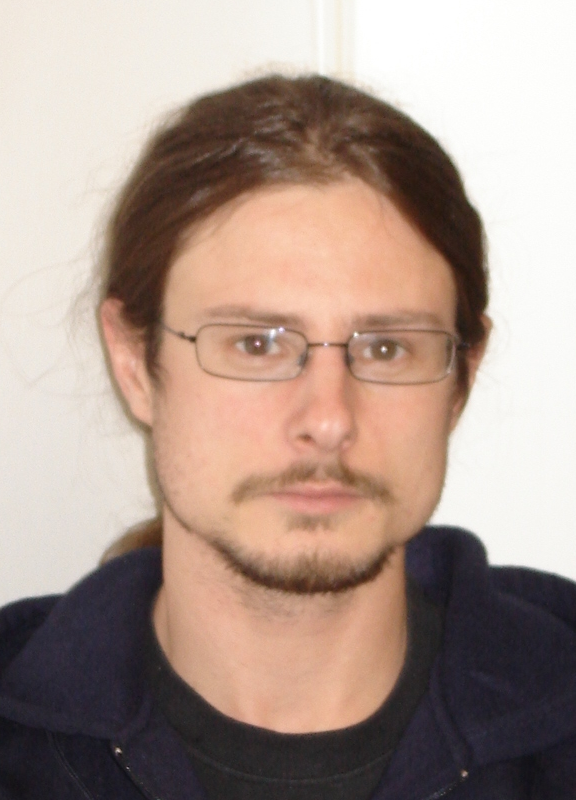
Pietro S. Oliveto is a Senior Lecturer and an EPSRC Early Career Fellow at the University of Sheffield, UK. He received the Laurea degree in computer science from the University of Catania, Italy in 2005 and the PhD degree from the University of Birmingham, UK in 2009. He has been EPSRC PhD+ Fellow (2009-2010) and EPSRC Postdoctoral Fellow (2010-2013) at Birmingham and Vice-Chancellor's Fellow at Sheffield (2013-2016). His main research interest is the performance analysis of bio-inspired computation techniques including evolutionary algorithms, genetic programming, artificial immune systems and hyperheuristics. He has won best paper awards at GECCO 2008, ICARIS 2011, and GECCO 2014. He is part of the Steering Committee of the annual workshop on Theory of Randomized Search Heuristics (ThRaSH), Associate Editor of the IEEE Transactions on Evolutionary Computation, Chair of the IEEE CIS Task Force on Theoretical Foundations of Bio-inspired Computation, Leader of the ImAppNIO Cost Action Working Group on Benchmarking and member of the EPSRC Peer Review College. Dr. Oliveto has given tutorials on the runtime complexity analysis of EAs regularly at CEC, GECCO, WCCI, SSCI and PPSN since 2012.
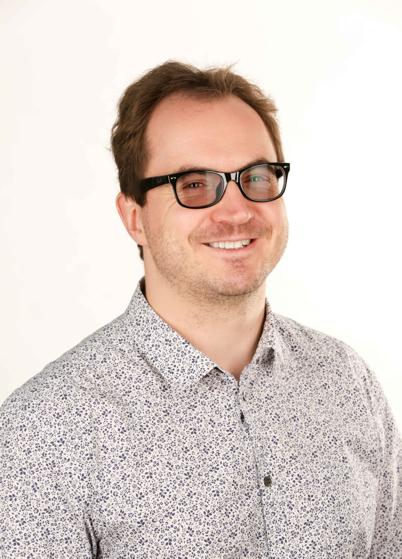
Markus Wagner is a Senior Lecturer at the School of Computer Science, University of Adelaide, Australia. He has done his PhD studies at the Max Planck Institute for Informatics in Saarbrücken, Germany and at the University of Adelaide, Australia. His research topics range from mathematical runtime analysis of heuristic optimization algorithms and theory-guided algorithm design to applications of heuristic methods to renewable energy production, professional team cycling and software engineering. So far, he has been a program committee member 30 times, and he has written over 70 articles with over 70 different co-authors. He has chaired several education-related committees within the IEEE CIS, is Co-Chair of ACALCI 2017 and General Chair of ACALCI 2018.
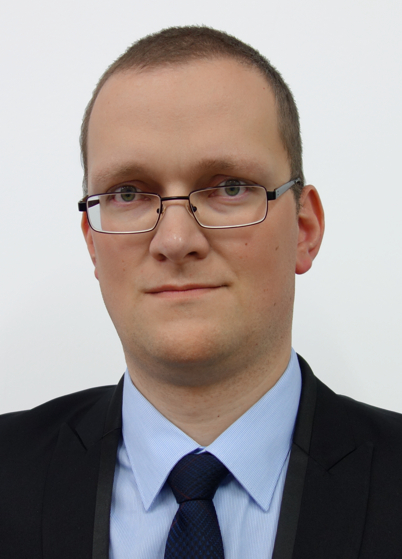
Thomas Weise obtained the MSc in Computer Science in 2005 from the Chemnitz University of Technology and his PhD from the University of Kassel in 2009. He then joined the University of Science and Technology of China (USTC) as PostDoc and subsequently became Associate Professor at the USTC-Birmingham Joint Research Institute in Intelligent Computation and Its Applications (UBRI) at USTC. In 2016, he joined Hefei University as Full Professor to found the Institute of Applied Optimization at the Faculty of Computer Science and Technology. Prof. Weise has more than seven years of experience as a full time researcher in China, having contributed significantly both to fundamental as well as applied research. He has more than 80 scientific publications in international peer reviewed journals and conferences. His book "Global Optimization Algorithms – Theory and Application" has been cited more than 730 times. He has acted as reviewer, editor, or programme committee member at 70 different venues.
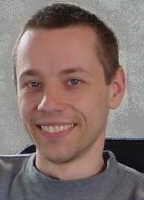
Borys Wróbel's background is biology and computer science, and he works at the intersection between the two fields. His current research interest are computational properties of biologically-inspired models of computation (artificial gene regulatory networks and spiking neural networks), which involves building artificial life software platforms that use high performance computing and neuromorphic hardware. Borys graduated from the University of Gdansk (Poland) in 1997, was a Fulbright Visiting Researcher in the Salk Institute for Biological Studies in San Diego, CA, and later FEBS and EMBO Fellow at the Hebrew University of Jerusalem (Israel), Marie Curie Postdoctoral Fellow at the University of Valencia, and Sciex Fellow in the Insitute of Neuroinformatics at the University of Zurich and ETHZ (Switzerland). He is a member of the Global Young Academy, Intelligent Systems Applications Technical Committee of the Institute of Electrical and Electronics Engineers Computational Intelligence Society (since 2012), and Association for Computing Machinery Special Interest Group for Genetic and Evolutionary Computation.
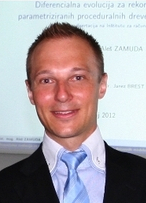
Aleš Zamuda is an Assistant Professor and Researcher at University of Maribor (UM), Slovenia. He received Ph.D. (2012), M.Sc. (2008), and B.Sc. (2006) degrees in computer science from UM. He is management committee (MC) member for Slovenia at European Cooperation in Science (COST), actions CA15140 (ImAppNIO - Improving Applicability of Nature-Inspired Optimisation by Joining Theory and Practice) and IC1406 (cHiPSet - High-Performance Modelling and Simulation for Big Data Applications). He is IEEE Senior Member, IEEE Young Professionals Chair for Slovenia Section, IEEE CIS member, ACM SIGEVO member, ImAppNIO Benchmarks working group vice-chair, and editorial board member (associate editor) for Swarm and Evolutionary Computation (2017 IF=3.893). His areas of computer science applications include ecosystems, evolutionary algorithms, multicriterion optimization, artificial life, and computer animation; currently yielding h-index 16, 38 publications, and 742 citations on Scopus. He won IEEE R8 SPC 2007 award, IEEE CEC 2009 ECiDUE, 2016 Danubuius Young Scientist Award, and 1% top reviewer at 2017 Publons Peer Review Awards, including reviews for 40 journals and 65 conferences.
Hosting Event
Fifteenth International Conference on Parallel Problem Solving from Nature (PPSN XV), September 8-12, 2018, in Coimbra, Portugal: http://ppsn2018.dei.uc.pt/
The Fifteenth International Conference on Parallel Problem Solving from Nature (PPSN XV) will be held in Coimbra, Portugal on 8-12 September 2018. The conference will take place at the Campus of the University of Coimbra, recognized by UNESCO as world heritage site, due to its relevance in the dissemination of knowledge throughout the fields of arts, sciences, law, architecture, urban planning and landscape. The venue includes a set of buildings and rooms of historical relevance, thus giving the participants the opportunity to visit the different areas of the university and experience the feeling of studying and working in Coimbra. This biennial meeting brings together researchers and practitioners in the field of Natural Computing. Natural Computing is the study of computational systems which use ideas and get inspiration from natural systems, including biological, ecological, physical, chemical, and social systems. It is a fast-growing interdisciplinary field in which a range of techniques and methods are studied for dealing with large, complex, and dynamic problems with various sources of potential uncertainties.
PPSN XV will be a showcase of a wide range of topics in Natural Computing including, but not restricted to: Evolutionary Computation, Neural Computation, Molecular Computation, Quantum Computation, Artificial Life, Swarm Intelligence, Artificial Ant Systems, Artificial Immune Systems, Self-Organizing Systems, Emergent Behaviors, and Applications to Real-World Problems. PPSN XV will also feature workshops and tutorials covering advanced and fundamental topics in the field of Natural Computing.
Following the PPSN tradition, all accepted papers will be presented during poster sessions and will be included in the proceedings, to be published in the Series Lecture Notes in Computer Science (LNCS) by Springer. Prospective authors are invited to contribute their high-quality original results in the field of Natural Computing.
Related Events
- Black-Box Discrete Optimization Benchmarking (BB-DOB@GECCO) Workshop
- Special Issue on Benchmarking of Computational Intelligence Algorithms in the Applied Soft Computing Journal
- International Workshop on Benchmarking of Computational Intelligence Algorithms (BOCIA)
Web Links
- Special Session on Benchmarking of Computational Intelligence Algorithms (BOCIA'21)
- Workshop Call for Papers (CfP) in PDF format
- Workshop Call for Papers (CfP) as plain text file
- WikiCFP Page of the Workshop
- Sister Workshop: Black-Box Discrete Optimization Benchmarking (BB-DOB@GECCO) Workshop
- Related Special Issue: Special Issue on Benchmarking of Computational Intelligence Algorithms in the Applied Soft Computing Journal
- Related Workshop: International Workshop on Benchmarking of Computational Intelligence Algorithms (BOCIA)
